An interview with Neil Jaffe, President of Chequered Flag International
There’s no better way to get an inside look at the classic car market than speaking with the people who have been involved for decades. In our new interview series, we travel the country speaking with people in the classic car industry and sharing their stories.
For our first story, we travel to sunny Los Angeles to speak with Neil Jaffe, the President of Chequered Flag International. Neil runs one of the best known classic car dealerships in California. He specializes in air-cooled Porsches. His dealership in California not only attracts nationwide buyers, but clientele from all parts of the world.
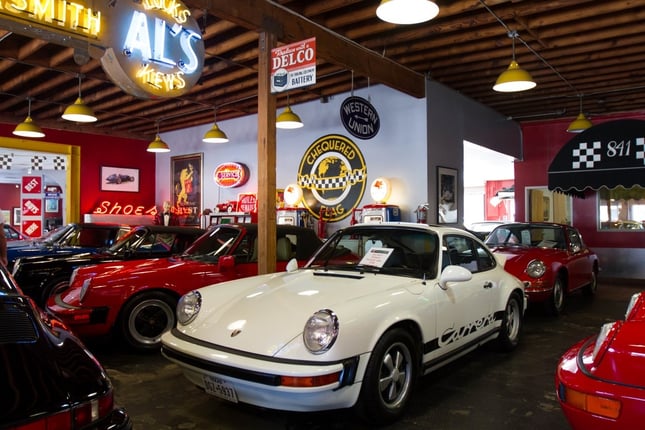
Below is a lightly edited transcript of our conversation.
Dmitriy Shibarshin: How did you get started in the classic car business?
Neil Jaffe: It started with my dad. He was a university lecturer in England with 6 kids. It was a good job, but not a well paying job. He supplemented his income by going to the auctions, buying cars and selling them from his house. From an early age I went with him and picked up cars. I got the bug by the time I was about 10 or 11. And that was it, I was ruined for a decent life.
Then there was a guy who called himself America’s car man in England. His name was John Lewis and he sold 280SE convertibles in London. We used to make the trip from Bristol to London, and drive back in something different. He always used to say, “My dream is to be in Venice or Malibu with a cordless phone selling cars.” I thought thats a pretty good dream. I never consciously thought about it until I was sitting on the beach in Venice with a cordless phone selling cars. And I went hang on a minute, this is somebody else’s dream I was living.
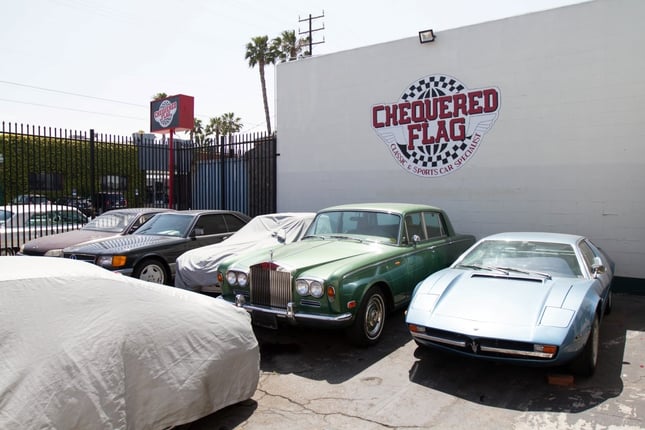
DS: What brought you over to the US?
NJ: When I was a kid, 7 or 8, we came to Ohio because my dad got a professorship. We stayed for a year. Then it sort of happened, I came here permanently in 1981.
DS: And when did you open the dealership?
NJ: I opened the dealership in 1985. And almost 15,000 cars later, we’re still here.
DS: Did Chequered Flag begin as a classic car dealership?
NJ: What happened is I had some Dutch guys come in to the dealership around 1986 to look at an MGA. They came in and said we will buy the MGA, and we will do you a favor. There’s a move coming to America, it’s going to be a classic car boom like you won’t believe. Next time when we’re back here in about 6 months, your showroom will be filled with classic cars. And I said sure, have a nice day. They came back in 6 months, I didn’t have a modern car in the place.
Young guys would come from overseas with $200,000 in their pocket, buy what they could and go home. They would ship the cars, come back 6 months later and do it all over again. And those Dutch guys that came in were great! They would buy cars for $200 and they would buy cars for $1 million. They were good cars guys, they knew everything. Over the years, they bought hundreds of cars from us. I have done consistently more business with the Dutch than anyone else in the last 30 odd years.
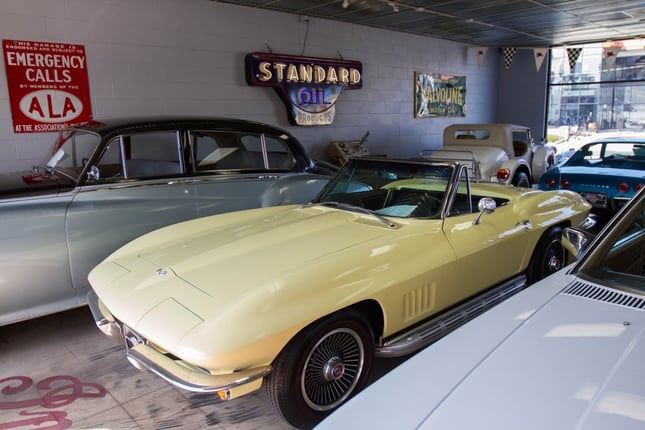
DS: Are you a classic car guy yourself?
NJ: Yea! I think you got to have a passion for the cars or you’re kind of doomed. If you do it by the numbers you are going to have two problems. I don’t think you’ll ever feel fulfilled, and you will have some unhappy customers. When buying a car, people look at a picture and they fill in the blanks themselves, and its generally to the plus side of the condition of the car itself. They are going on an old memory. Its a bit of a dream, it comes with a lot of optimism. What I found very early on is if someone is not coming to see the car, I better describe all the issues early on, because the same guy can buy the same car and pay the same price and either hate it or like it depending on what his expectations were. If you lied to him or haven’t told him about something, the first bad thing he finds will make him very unhappy with the car and you. I try to be honest and not give a big flowery description, I just give an honest description. They will either buy it or not, if they don’t want it someone else will. I try to be price correct, and I move enough cars to know the market.
DS: What draws you to classic cars?
NJ: I like the classic car people. They are a bit like dog owners, softer around the edges than regular people. A guy that buys a new Ferrari or Lamborghini you don’t want for a friend. As one of my partners always says, that says a lot about a person, and all if it bad. I like classic car people, and I also like to think of myself as an advocate for men’s rights. Its the middle age guy that's really taking a beating from everyone. If you could afford a classic car, and you like one, you should be able to buy it without feeling bad. It’s not a big indulgence and you could argue its an intelligent choice, at least they have the potential to appreciate in value. I will never tell anyone to buy a car because it will be worth 300% more in 5 years. Nobody knows for sure, nobody knows what the world is going to look like in 5 years.
The downside is it is a harmless thing to do and its a really great thing to do. Its not as selfish as buying a new car or an expensive watch, or anything else that sends out the wrong signals. That’s filling an inside hole with outside stuff, it never really works. I think the people that buy classic cars are not buying it to scratch an itch they have, its to further enrich an already pretty good life. Its a quality purchase, its an unnecessary purchase maybe but its not a cry for help.
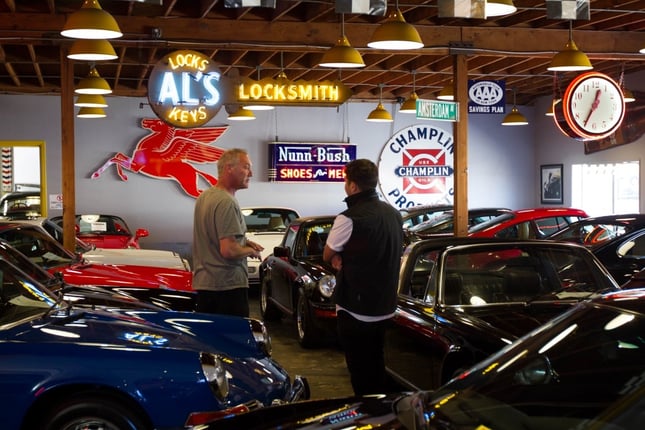
I really think its a good thing to do. You go to a dealer auction and its a cut throat business. Everything is about the last $200 or $300. These guys know everything about any slight misrepresentation where they can get an extra dollar. I would rather give value and explain that it has original paint with original miles. You can try and buy something with 3 times the miles and make it this good, but it will still have 3 times the miles.
But I also do see that if you’re an entry level buyer and you want to buy something good you can get away with a high mileage car like this Porsche we have here. A couple brought it brand new and now it has 172,000 miles. It has never been hit, and has never been abused. Its a great car for an entry level guy to buy. Sure it has the high mileage and the value ceiling will always be less than the other cars, but the cost of entry is plausible for a younger enthusiast. I like to have a range, you can't just stick yourself on the ceiling and say if you can't afford my cars then bad luck. Its good to have range.
DS: That's very true. We also ship million dollar cars and hundred dollar cars. Its good to be flexible. If you want to be successful you have to deal with everyone.
NJ: The bottom line really is when you get a bit older a lot of the BS drops off and you try to enjoy your life. You gotta have fun. So why be a stuffed shirt, and be hung up on how the world sees you. Its almost an irrelevance.
DS: Totally agree. If you like something, do it. Sooner or later you will be successful.
NJ: I get up at 4, and I'm here by 5:30. I'm always around, I'm always available. I would never say I work hard, I would say I have the easiest job in the world. Someone else might say I work really hard. I think that if you're obsessed with something, that's not work. I don't want to call it a passion because that's such an overused word. But yea, it absolutely is.
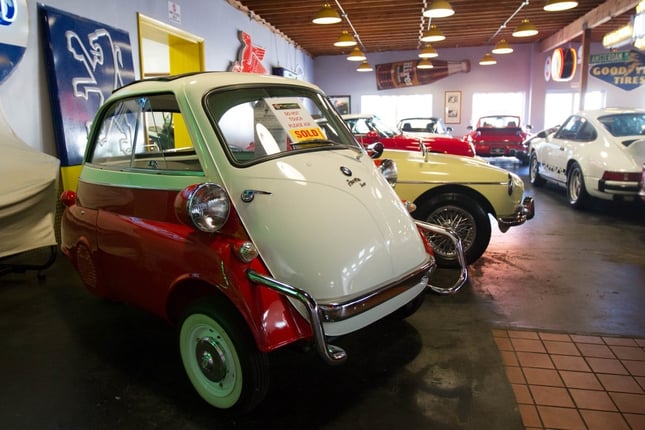
DS: How do you think the classic car market changed since you started?
NJ: The one thing that is constant is change. Theres always this flux, but it isn't as if all classic cars did this. When I started a 1948/49 Town and Country was the holy grail, it was about $100k. Today you will struggle to get $65k for it. Where as a $130k Ferrari 30 years ago is worth $1 to $3 million now. The rising tide did raise all boats to some extent. But the market is squirrely. My partner bought a Jaguar D-Type in 1989 for a little over a million dollars. By 1991 they couldn’t get $300k for the car. Now its a $5-$6 million car.
There was also a big drop that I watched after the Enzo Ferrari run-up in anticipation of his death. We had these anniversary Countachs we bought in 1989. They were $220k sticker price, and we were getting $400,000 for them. Then it went to nothing. I survived that, and a lot of others didn’t. Then around 2008 it got a little sticky again. When I sold a Ferrari 330GTC in 2008, I was happy to get $180k-$190k for it. They then went up to around $850k, and then back down to $500k to $60k or so. Its not a straight trajectory, its not a slam dunk.
My favorite thing to buy when I came here were Aston Martin DB5s. There were loads of right hand drive ones stuck up people's driveways that weren't running. They had bought them in England when the American money was really strong in the 1970s. Then they just got bored with them. I was buying them for $30,000 to $40,000. I sold them all to a guy in England. I didn't know the value disparity. At one point, they shot up to a $1 million for a RHD, and close to a $1.5 million for a LHD. I didn't buy any to keep for myself!
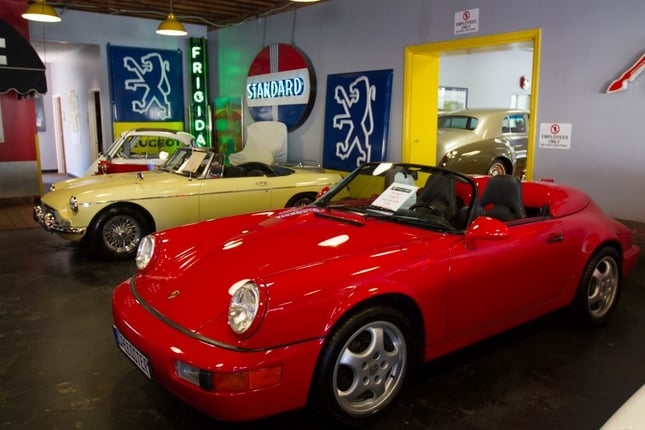
DS: Are there any cars you see appreciating quickly in the near-future?
NJ: The smart guys made a killing with the Aston-Martins, and with cars such as the rare Porsche 993 GT2s that were built for collections. They were never cheap, but they bought the cars that became 20 times what they paid for. There's been a steady appreciation a lot like real estate. It looks like its going up overall but it actually is up and down. There's a lot of cars I wouldn't want to buy right now. I just sold a Ferrari 599 Aperta for $1.3 million. I don't think I want to buy that car because if the car market takes a dump that could be a $700,000 car. I don't believe in LaFerraris being worth $4 million either.
I think you buy what you love and buy what makes you happy. If you buy thinking it will go up maybe you have a 50/50 chance. I now think the cars have had their run and their values are fairly established now. They are going to move based on how the economy does.
But some of the really special models from Ferrari and Jaguar, stuff that you could see in a museum, are only going to get stronger.
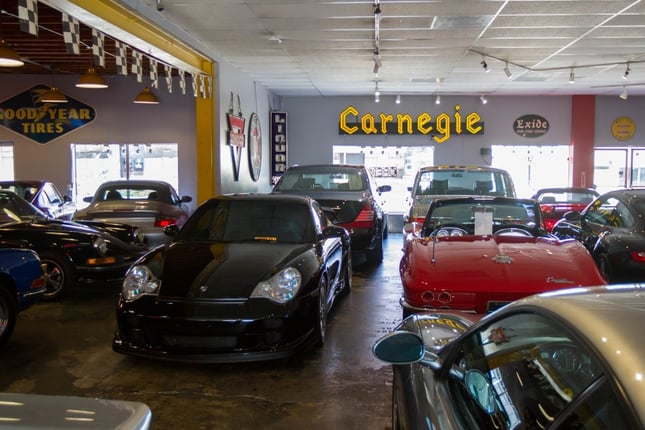
DS: Are you seeing the younger generation express more interest in classic cars?
NJ: Yes, and its weird seeing the people born in the 1980s with money wanting to buy a late-model classic. I had a 2004 NSX with 4k miles that I sold to a friend of mine for $104k. He took it to an auction and got $140k for it. The buyers knew the car well, and they wanted it because they were born in the 1980s. To me its a great car, but its not $140k car. No one will ever put miles on that car, Its like the low mile Porsche 928 we have here, it will be in a collection forever.
I always saw myself as catering to the driver collector, the guy who just loves his car.
DS: Are there any cars you wish you would have kept?
NJ: The Aston-Martin DB5, I have loved them from when I was a kid. Its what you saw pre-puberty that imprinted itself on you. And for me it was the E-Types, DB5s, those kind of cars. I never really had a passion for American cars. And the appreciation for Ferrari came to me a bit late because I never saw many as a kid. I think the DB5 is the one car I would have to myself, that's out of my league financially. Although the convertibles are a lot more valuable, I think the coupe is the one to have. Plus I can fit in them, I cannot really fit in an E-Type anymore.
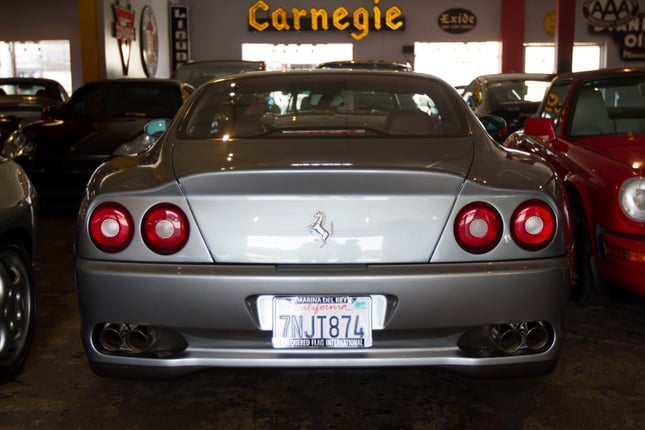
DS: Which classic cars would you recommend to a first time buyer willing to dip his feet in this hobby?
NJ: The more you know about cars, the narrower the selection is because you base it on more things than on initial visual impression. You want it to keep up with the other cars on the road. You want parts availability. You don't want to look like you're trying too hard. You want it to be a classic looking car which inspires the right kind of appreciation. Its no accident that 75% of the cars in my inventory are Porsches, they do everything you need. They're drivers, and a tall guy can fit in them. They're comfortable, they've got functional air and windows. To me a Porsche is the consummate affordable collectible.
You can buy a Porsche for $30k that you can feel special in and you can enjoy and work on. You can also buy a Porsche for $3 million, and everything in between. And thats what gives people the Porsche bug. You buy a 924, and then you want a 944, then a 968, then a 911. It never ends. Its why people have a hundred cars in a Porsche collection and they are still going. Porsches are truly in a class of their own. A Ferrari collector will say that a Porsche is just an every man's collector car, and not a serious collector car. Ferrari's are silly. They are too delicate, they're too expensive. They're like the Italian temperament, they are unpredictable. And Porsche are like the German temperament, they are very predictable.
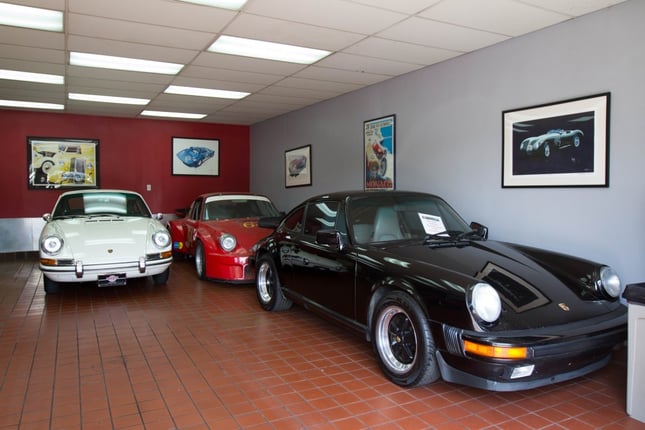
DS: And Porsches are a driver’s car that are meant to be driven.
NJ: Yea, and you can drive them hard. Its a shame that it sometimes becomes about the low mileage examples that are only meant for the Concours field. I have never been a really big fan of that level of car collecting.
DS: Are there any classic cars you believe are overlooked?
NJ: The English cars, even the Healey nobody really cares about. I've got a steel bumper, steel dash, MGB over here. Its the 1967 model, the last great year. I can't get over $20k for it. And to me if you could only afford one classic car, that would be a great car to buy. You don't want a bad one. With a lot of these the problem is the lowest common denominator of them gives them their relative worthlessness. They are either so cheap that they belong to people who can't afford to maintain them, or there is no point in maintaining them to a high level because the value isn't there. So they sort of fall bellow the maintenance level required to own a nice classic. But if they were worth 5 times as much they would not be a problem car because they would have the money spent on them. I think they are a little overlooked.
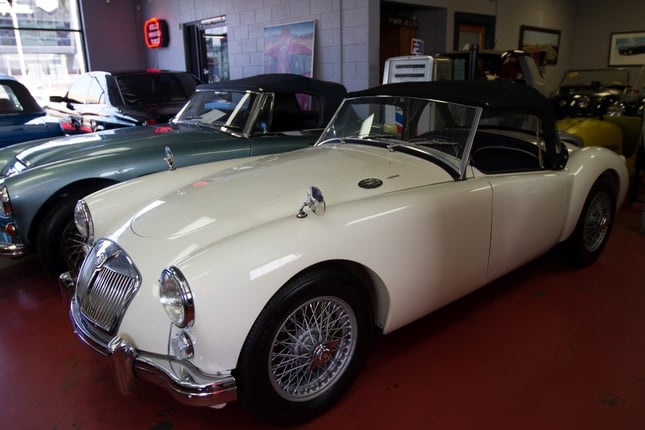
Also the Japanese cars like the Datsun 240z, 260z, and the 280z. They may not be as overlooked as before, but they are still relatively affordable. Then of course there is the early M3, M5, and MGs. All of these are coming up, everyone is getting hip to them.
For the longest time Porsches weren't valuable, nobody wanted the 964. Now the switch has flipped, the 964 is now even stronger than the Carreras and the 993s because they are so rare. Because they were a shitty car nobody bought them, and they had low production numbers. What made them shitty is only a simple issue where the engine leaks oil through the through bolts in the crankcase. Its only a $5k fix, and most have been fixed by now anyway. They are a brilliant car, and people are really starting to love them.
DS: Do you think any modern cars will become classics in the future?
NJ: I think there's too much ubiquitousness. And there's too much technology. And with that technology, an implied disposability. Because the new plug and play is going to be very different 3 years from now. There's not going to be any value to the old one. Its like an old nav screen. Theres a real attraction to analogue, its a demarcation zone. And you can get a one sided or the other, but thats really the big difference that made these cars so collectible is their basicness. And that I think is especially what the Germans, the Porsches, its the end of the form follows function era. The end of the evolution of the species era. Its a demarcation. I think now we are just into depreciating assets with modern stuff. I mean yes the Porsche does bring out these special cars like the 911R. All of a sudden it is $300k over MSRP. Thats a flash in the pan thing. They die out quickly. Its just “the I have to have the latest and greatest thing” and I have enough money so I can pay for it.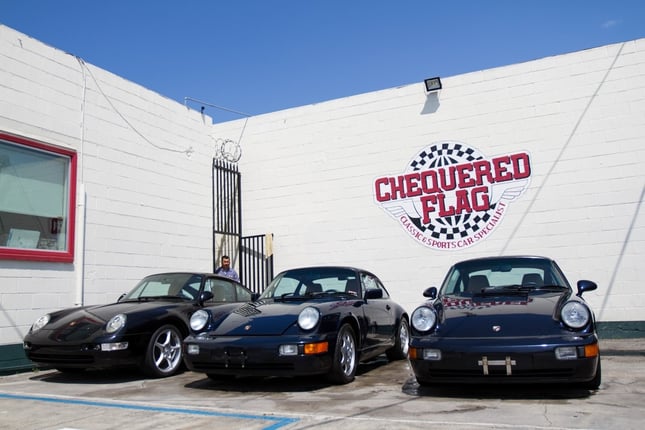
If you are in the market for a classic car from the US, we highly recommend checking out Chequered Flag.
You May Also Like
These Related Stories
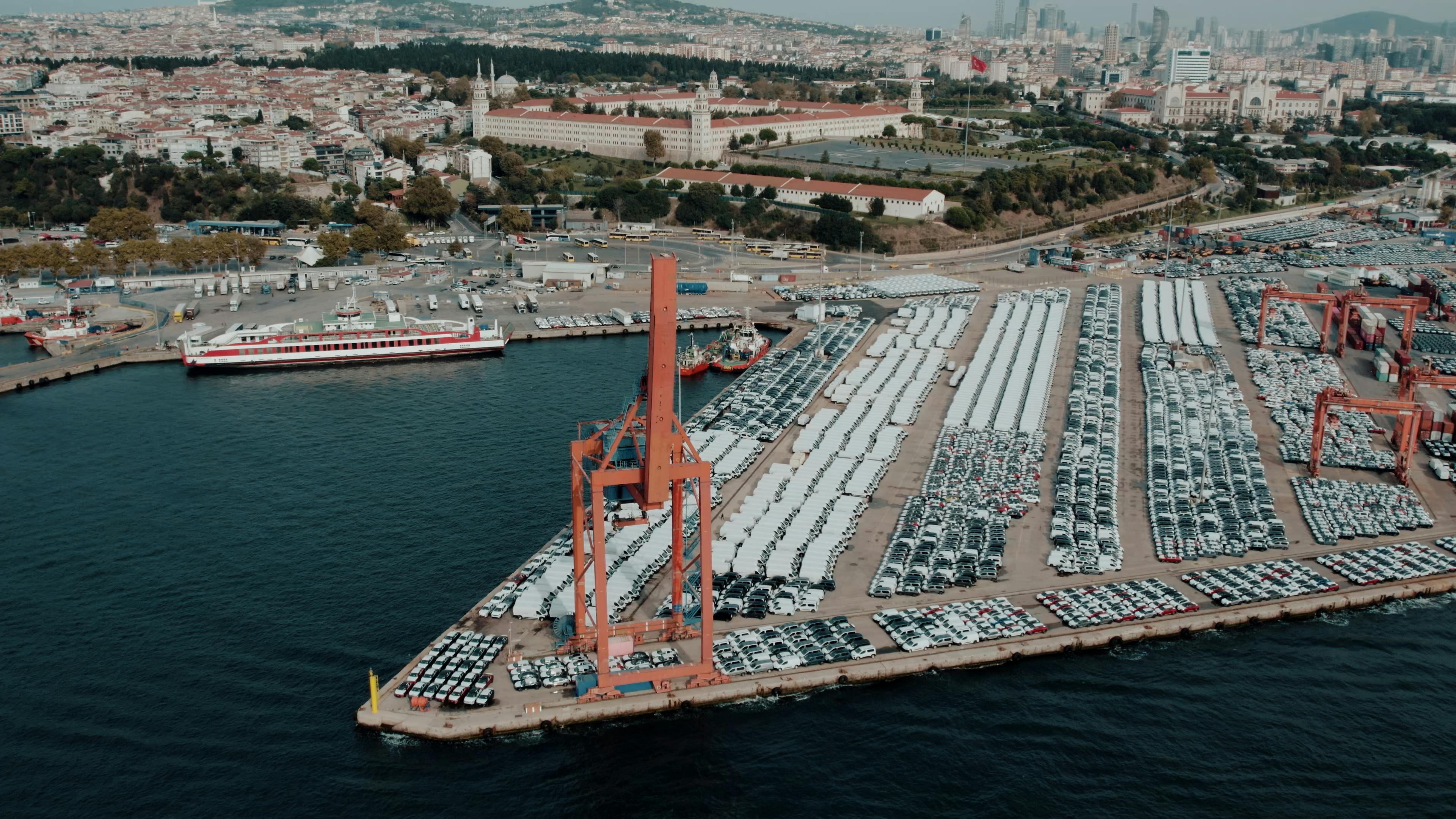
International Car Shipping: Process, Costs, and Best Practices in 2025
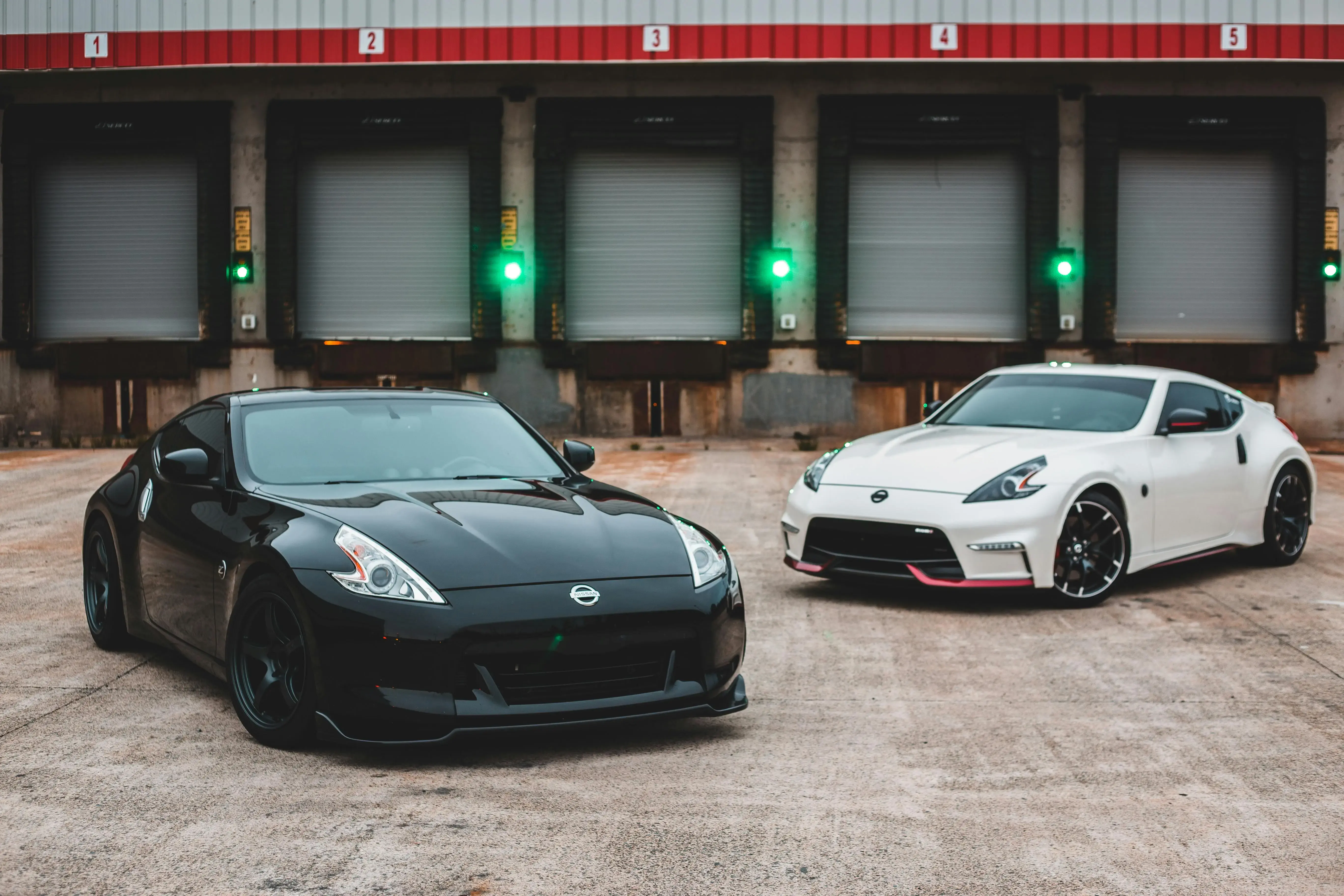
Best International Car Shipping Company in 2026
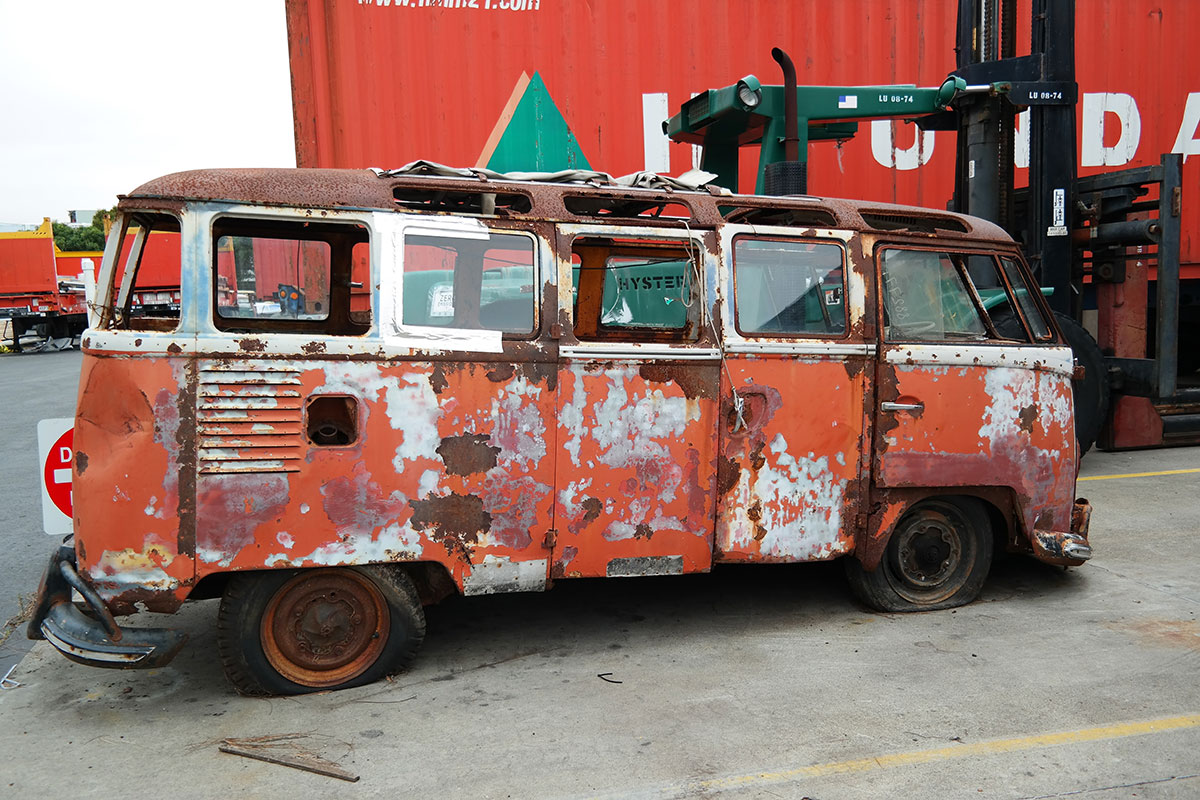
-093789-edited.png?width=220&height=79&name=wcs_final_logo_(1)-093789-edited.png)